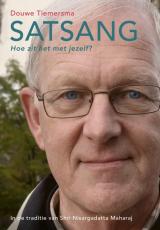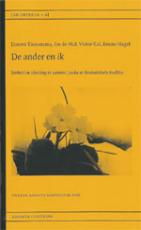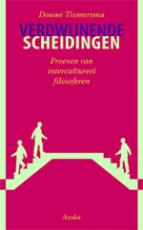?Advaita Post Volume 13 No. 9 - When you fully, consciously dive
28 April 2012
--- When you fully, consciously dive into the essence of your current situation, there is realization ---
****
It is what it is.
Even You are yourself.
*****
Song of Enlightenment
Do you know that leisurely sage who has gone beyond learning, and who doesn't exert himself in anything?
He endeavors neither to avoid idle thoughts nor to seek after the Truth;
For he knows that ignorance is also the Reality,
And that this empty, illusory, body is nothing but the absolute Reality.
When one knows the Absolute, there are no independent objects any more;
The Source of all things is the absolute Self of all the enlightened beings.
The five elements are like a cloud aimlessly floating here and there;
And the three passions are like the foam which appears and disappears on the surface of the ocean.
When the absolute Reality is known, it is seen that there are no individual selves and no objective forms;
All previous karma which would lead to hell is instantly erased...
After the Awakening, there is only vast Emptiness; this vast universe of forms ceases to exist outside of one's Self.
Here, one sees neither sin nor bliss, neither loss nor gain.
In the midst of the eternal Serenity, no questions arise;
The dust of ignorance which has accumulated for ages on the unpolished mirror,
Is now and forever wiped away in the recognition of Truth.
The people do not know where to find this precious jewel
Which lies deep within the creative Power;
The activity miraculously performed by this creative Power is an illusion and yet it is not an illusion,
Just as the rays of light emanating from the one perfect Sun belong to it and yet do not belong to it.
Let us be thorough, not only in inner experience, but in its interpretation,
And our lives will be perfect in meditation and in wisdom as well — not adhering one-sidedly to Emptiness alone.
It is not we alone who have come to this conclusion;
All the enlightened, numerous as the sands of India, are of the same mind.
I crossed seas and rivers, climbed mountains, and forded streams,
To visit the Masters, to question after Truth, to delve into the secrets of Mystery;
But since I learned the true path from my Teacher,
I know that I don't need to be concerned about birth-and-death any longer.
For walking is Truth, sitting is Truth;
Whether talking or not, whether moving or not, the Essence is always itself.
Even when confronted by swords and spears,
It never loses its silence;
Not even poisonous drugs can perturb Its serenity.
Ever since the sudden realization that I have never been born,
All vicissitudes of fate, good and bad, have lost their power over me.
I live far off in the mountains in a modest hut;
The mountains are high, the shade-trees are broad.
And under an old pine I sit quietly and contentedly in my monkish home;
Here, perfect tranquility and rustic simplicity reign.
The sage seeks neither the Truth, nor avoids its defilements;
He clearly perceives that all dualities are empty and have no reality.
And, since they have no reality, he is not one-sided, neither empty, nor not-empty.
This is the genuine state of sage hood.
The one Mind, like a mirror, reflects everything brightly, and knows no limitations;
It pervades the entire universe even its minutest crevices.
This world and all its contents, multitudinous in form, are reflected in the one Mind,
Which, shining like a perfect gem, knows no "outer" or "inner."
When we hold exclusively to Emptiness, we deny the entire causal world;
Then all is attributed to chance, with no ruling principle, inviting evil to prevail.
The same error occurs when one holds exclusively to the manifested, denying the Emptiness;
That would be like throwing oneself into the flames to prevent drowning oneself in water....
The Real need not be adhered to; as for the un-real, there has never been any such thing.
When all oppositions are transcended, the un-real becomes meaningless.
Even when the various means to the attainment of Emptiness are abandoned,
The eternal Oneness remains as It has always been.
Cheng-tao Ke's, Song of Enlightenment, from History of Mysticism by S. Abhayananda, Atma Books, Olympia, Washington.
*****
Text satsang
A talk with Advaita Douwe Tiemersma, Schiermonnikoog, September 8, 2010
Openings to openness are everywhere
You can be aware of your situation, but then also, you are only aware of the purified essence of that situation, the core of it, the foundation and most important feature of the situation. It's a tool for getting to the source very quickly. For example: sitting on your chair. That belongs to your situation. You become aware of yourself: sitting is resting; I rest in the place where I sit. What is the essence of that? That's one hundred percent rest. All specific forms of the situation can fall away. All kinds of incidental forms of that situation, for example, the chair you sit on, the place where you sit, the time, are no longer a factor. One hundred percent rest means that all the forms have fallen away. That means that there is an infinite rest, an infinite relaxation. So you become aware of the situation. Then you are aware of the essence of that situation and you go along with it. Take another example: if all has gone well, you have enjoyed the dinner tonight. That's the situation. You can tell a whole story about it. But now it's about that enjoyment. What is the essence of that enjoyment? It is a pure, infinite enjoyment. Go along with that. Then there is infinite ananda, bliss. Still another example: when you have affection for someone or something, what is the situation? You can describe it. What is the essence of that situation, what is the essence of love? Enter into it there and you enter into an infinite sphere of purified love.
We have often encountered the functioning principle: in a certain situation, you experience something. There is a subject and there is an object. You focus on your highest sense, the highest essence that is possible in this situation. That is no longer positioned on the dualistic level and so from there you can let the distance between yourself as subject and the object disappear. Then there is an internal realization of the highest. In order to allow that distance to fall away it's necessary for you to be open to the other that initially you experienced at a distance. A loving openness is necessary, a full acceptance, a dedication, a love for that other or for the other as for yourself, so that it may coincide with yourself.
If you can only see it, you have openings to openness everywhere. It also exists in the very ordinary things, the ordinary situation. Somewhere in your consciousness you have a notion of self-consciousness, but that's completely conditioned. Still, you have a sense of what it might mean to be completely present in pure self-consciousness. You stay focused on the essence of pure self-being-awareness. There is a dedication, a relaxation, an allowance of the dissolution of distance, a surrender. That means a letting go of everything that doesn't belong there. Then there is the realization: infinite being awareness. Therefore your orientation is crucial. Where are you oriented? Are you looking at all kinds of incidentals and making them too important? Then you know that you're stuck in that situation.
Again: the realization is not far away. It's all right there in the very simple things. When you're together with others drinking tea or coffee. That's nice. What does it mean that it's so cozy? What is the essence of that situation? Let it grow, enter into it. In this sphere of companionship, of feeling good, there is a piece of ananda. That's the essence. You begin with a situation containing properties. That situation is still conditioned. When you dedicate yourself to the essence, when you totally surrender to it, it becomes universal, free of conditions. Then you too are also universal, because you don't grasp on to the conditions, you leave them behind.
This is what Plato meant by 'ideas'. Through training you must learn act on these ideas. And those who love wisdom, the philosophers, the philo-sophers, completed their training. These 'ideas' were not concepts, it was more about the essential form, the essential quality in the sense we are talking about now. So then you see the essential qualities behind the world of forms. And when you enter into it, it brings you into the world of the highest essential qualities: the beautiful, the true and the good. When this motion continues, you inevitably come to the universal level of sat-chit-ananda: the 'I am' without qualities. That is something where the particular features are already long gone. It's about the essence of self-being, and that is self-being without attributes.
Does sat-chit-ananda always have an emotional quality?
Ananda has a positive emotional quality. But it is a universal quality, a quality of universal being-consciousness. You need to stay focused on it until the distance is completely gone. That means that it's totally realized, that it is your reality.
You exit from ordinary coziness and you enter into infinite coziness. But what if you exit from less pleasant things?
Then it's exactly the same. When it really continues on through, you emerge in the origin from which everything arises, both good and evil. Grief for example is not such a nice emotion, but when you really dive into the essence of it, it begins to expand, and becomes universal grief. You enter right into the origin and then it becomes still. After a while of intensive weeping and of sitting in your grief, it becomes quiet and then there's nothing more.
There is a story about someone who always stole and was a true professional thief. He was very good at it. He came to Ramakrishna with the question of how he could attain liberation. Ramakrishna told him to focus on the essence of stealing, on the essential perfection that exists within it. Within a short time he was enlightened. Because he took the perfection so seriously, only Perfection remained. It doesn't matter whether the situation is judged as positive or negative.
In the movement towards the origin, it becomes increasingly subtle, increasingly rarified. You have, in Indian terms, three basic qualities, three gunas. These three gunas are present on all levels. On all levels you have inertia (tamas), activity (rajas) and purity (sattva), because these are properties of all nature. On the level of sat-chit-ananda the three gunas are still there, though they have become very rarified and open. As a whole, it goes increasingly in the direction of sattvic purity, but the three gunas continue to be present up to the last.
Then does purity dominate in the three gunas?
No, I don't say that. Perhaps you could put it like this: the three are always present, only the zero value shifts so that the total always becomes more sattvic (purer). You don't need to turn off tamas and rajas, it doesn't work anyway. On every level you have to deal with these energies. As long as there are still energies you are dealing with nature, with the three gunas. As a whole it becomes increasingly rarified, lighter and in this sense, more sattvic. Then the realization of the absolute as the source of the three gunas is no longer a problem.
*****
Er is geen tweeheid
als je ontspannen bent
in zelf-bewustzijn
is dat duidelijk.
Boeken
Douwe schreef en redigeerde gedurende zijn leven boeken. Via onze uitgeverij zijn deze nog verkrijgbaar.



